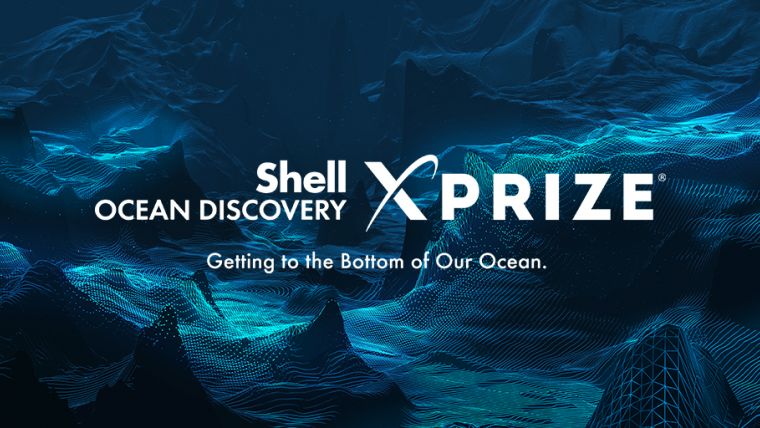GEBCO Team Enters Shell Ocean Discovery XPRIZE Competition
A team of graduate fellows from The Nippon Foundation’s GEBCO Postgraduate Certificate in Ocean Bathymetry Training Programme, run at the Center for Coastal and Ocean Mapping at the University of New Hampshire (CCOM-UNH, USA), will be taking part in the USD7 million Shell Ocean Discovery XPRIZE. The GEBCO-NF team have entered this three-year global competition aimed at challenging teams to advance breakthrough technologies for autonomous, fast and high-resolution ocean exploration.
The competition is part of XPRIZE’s 10-year ocean initiative in a commitment to launch five multi-million dollar prizes by 2020 “to address critical ocean challenges and help make the oceans healthy, valued and understood”.
Ocean Mapping at 0.5m Vertical Resolution
The GEBCO (General Bathymetric Chart of the Oceans) team will address the key elements of the challenge: seabed mapping first at 2,000 metres, then at 4,000 metres with a five metre and 0.5 metre vertical resolution. The deadline for submission of documents is 15 December 2016, with field tests taking place late next year. Results will be announced in December 2018.
The inspiration to enter a team for the challenge came in June 2016 from the NF-GEBCO Forum for Future Ocean Floor Mapping, held in Monaco and attended by 150 senior representatives, scientists and scholars from major ocean-related and international organisations. A key aspect of the Forum was the celebration of 12 years of the Ocean Mapping Training Programme, funded by The Nippon Foundation, and 48 graduate fellows were in Monaco for the event. The GEBCO-NF team entering the competition comprises graduate fellows from Israel, Poland, Russia, the UK, USA, Japan and Malaysia, as well as technical advisers from Norway, the USA, UK, The Netherlands and New Zealand.
Diverse Backgrounds
According to Rochelle Wigley, director of the New Hampshire Ocean Mapping Course and a member of the team, the core group currently represents six different years of the programme and seven different coastal states. The seven alumni leading this initiative come from diverse backgrounds in industry, the Navy and research, and it is this diversity which gives the team its strength. These alumni are part of the future of ocean mapping and the networks they are building cross national borders and bring together diverse people with a passion for the ocean.
The Monaco Forum endorsed NF-GEBCO’s vision for mapping the ocean floor by the year 2030, or Seabed 2030 – with the creation of “a high resolution digital map, from the coast to the deepest trench of the ocean that enables scientists to explore and understand how the oceans work, shaping maritime policy and supporting the management of natural marine resources for a sustainable Blue Economy”.
Data Acquisition Challenges
Bob Anderson, technical adviser to the GEBCO-NF team, and a former US Navy submarine electrical engineer, says that the competition “is comprised of a number of technical challenges which individually are achievable using current technologies but, in combination, present a very difficult problem. Swath survey systems are common, but the requirement for high resolution means the survey system needs to operate near the seafloor. This presents multiple requirements: the system must be mounted to an underwater vehicle and capable of being launched and retrieved without the support of a manned surface ship. Operating a vehicle near the seafloor represents the risk of collision in rough terrain. The underwater vehicle position must be determined accurately, and GPS does not work underwater, so a positioning system must be incorporated which combines a satellite positioning system at the surface and an acoustic positioning system underwater. The system must be deployable from a shore site to an offshore location and then returned to shore where the results of the survey must be delivered within 48 hours. And the entire system must fit within the confines of an ocean shipping container”.
Further technological support is being provided by Kongsberg Maritime.
Describing the team’s task, Robin Falconer, chairman of the NF-GEBCO Forum’s organising committee, who has coordinated the GEBCO-NF challenge, remarked “almost all the key elements required for the challenge already exist but are used in other applications. Putting them together to meet the XPRIZE application is what we will do”.














